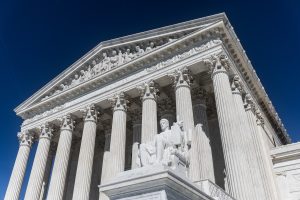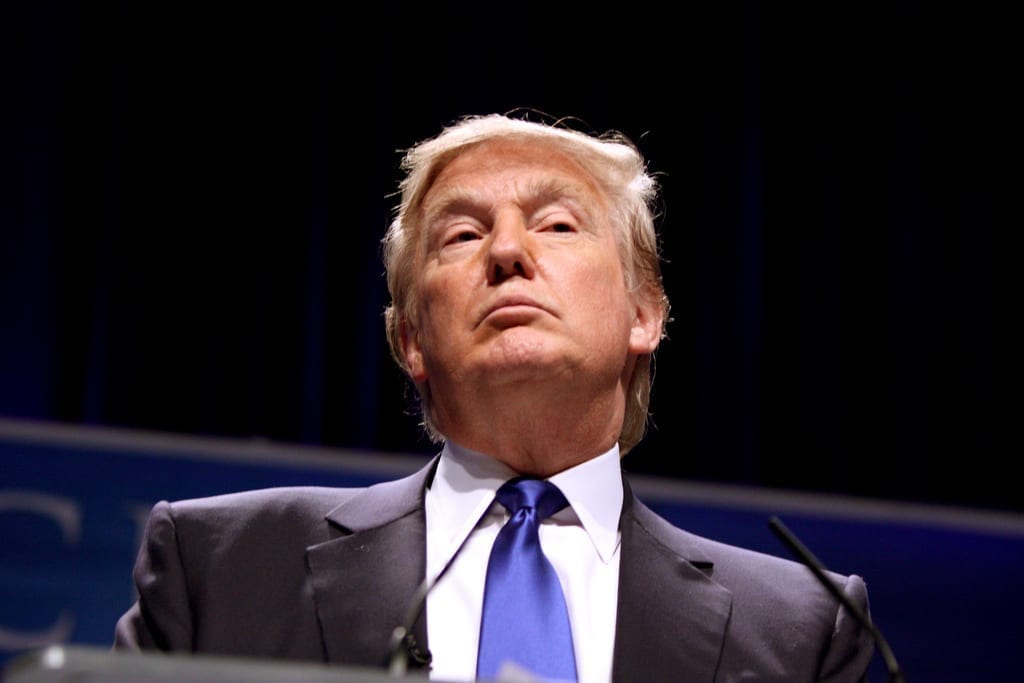However, it is unlikely the public will get a peek at Trump’s financial information until after the election’s over.
The U.S. Supreme Court has determined that President Donald Trump cannot claim presidential immunity to protect his tax records from an ongoing investigation.
Reuters reports that the justices issued two separate rulings on Thursday.
The 7-2 set of decisions may compel Trump to release his financial information to a New York state prosecutor while temporarily preventing the Democrat-controlled House of Representatives from accessing the same documents.
Both rulings, says Reuters, were penned by Chief Justice John Roberts—a long-time conservative who has, in recent years, begun siding increasingly more with his liberal colleagues. In penning his opinion, Roberts noted that every president in American history has complied with courts’ requests for information and documentation.
Manhattan District Attorney Cyrus Vance Jr. is currently seeking Trump’s tax records to investigate allegations that the president illegally transferred “hush money” to women he had affairs with.
President Trump, however, has fought official request for tax records since taking the White House in early 2017.
“Since the earliest days of the Republic, ‘every man’ has included the president of the United States,” Roberts wrote for the majority. “Beginning with Jefferson and carrying on through Clinton, presidents have uniformly testified or produced documents in criminal proceedings when called upon by federal courts.”

“We cannot conclude that absolute immunity is necessary or appropriate under Article II or the Supremacy Clause,” he added.
With Robert’s decision, the case will be kicked back to Judge Victor Marrero of the U.S. District Court for the Southern District of New York.
Marrero, says NBC News, previously called Trump’s claims to immunity “repugnant to the nation’s governmental structure and constitutional values.”
Marrero further opined that Trump’s interpretation of “presidential immunity” appeared “unqualified and boundless” in its ability to shield the commander-in-chief from any and every form of scrutiny.
“As the court reads it, presidential immunity would stretch to cover every phase of criminal proceedings, including investigations, grand jury proceedings and subpoenas, indictment, prosecution, arrest, trial, conviction, and incarceration,” Marrero wrote in October. “That constitutional protection presumably would encompass any conduct, at any time, in any forum, whether federal or state, and whether the President acted alone or in concert with other individuals.”
With the Supreme Court now having handed the case back to Marrero, Vance will continue to pursue years’ worth of President Trump’s tax returns. However, a victory for Vance does not ensure that Trump’s information will ever go public. In a separate article, the New York Times states that Vance would have to indict Trump.
Although the Democrat-controlled House is likely to leak the president’s tax records, if they are able to obtain them, they will not likely have access to such information until after the election.
Sources
After court loss, Trump’s N.Y. tax case back to judge who called immunity claim ‘repugnant’
After Trump’s Supreme Court Loss, D.A. Moves Closer to Getting Tax Records
Trump wins delay in New York court fight over producing his tax returns
U.S. Supreme Court rebuffs Trump’s immunity claim, lets prosecutor get financial records


Join the conversation!